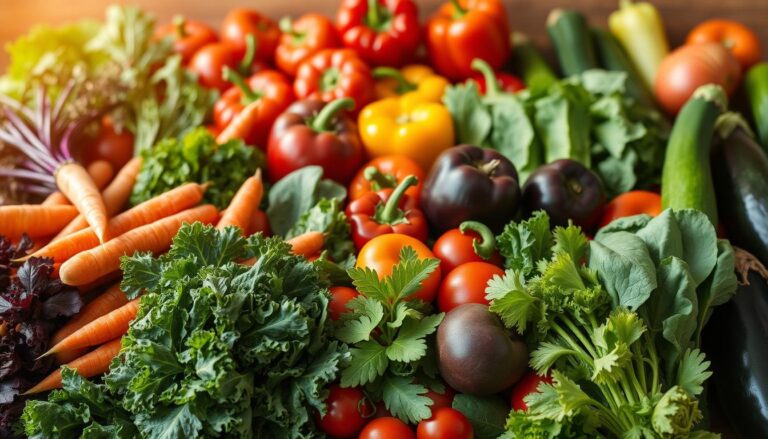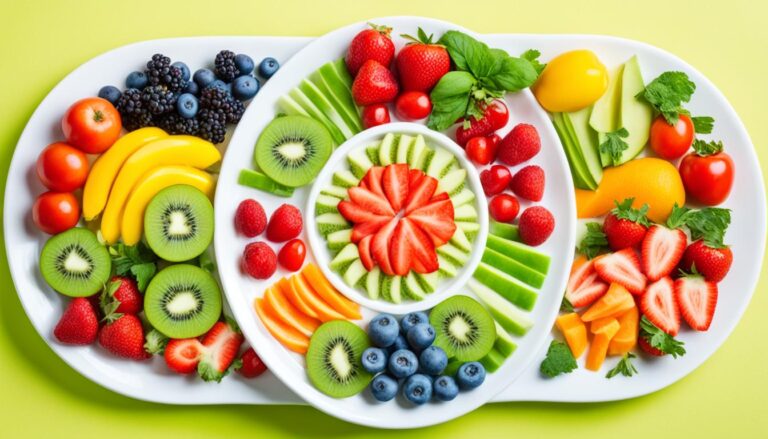Spirulina is known for its rich nutrients and health perks. It’s often called a superfood. But is it really? Spirulina is packed with protein, about 60% of its dry weight.
It’s also a great source of B vitamins, iron, and other important minerals.
To figure out if spirulina is a superfood, we need to look at its nutrition facts and the science behind its health benefits.
Key Takeaways
- Spirulina contains approximately 60% protein by dry weight, making it a high biological value protein source.
- Spirulina is a rich source of B vitamins, iron, and other essential minerals, providing numerous spirulina benefits.
- The recommended daily dosage of spirulina typically ranges from 2 to 3 g, with a maximum daily limit of 30 g.
- Spirulina supplements cover approximately 2% of the daily requirement for calcium and 4% to 6% of the daily phosphorus requirement.
- Scientific studies have shown that spirulina may help reduce blood pressure and improve glycemic control, supporting its superfood status.
- Spirulina nutrition facts and its health benefits make it a favorite among those looking for healthy supplements.
- Is spirulina really a superfood? The answer lies in the scientific evidence and spirulina nutrition facts, which will be explored in this article.
What Exactly is Spirulina?
Spirulina is a type of cyanobacteria found in fresh or salt water. It has been used for centuries in traditional medicine. Recent spirulina research has found it to have spirulina health benefits. It is packed with protein and essential amino acids.
Studies show spirulina contains between 50% to 70% protein. This makes it a great protein source, even compared to many vegetables.
Some of the key benefits of spirulina include:
- High protein content
- Essential amino acids
- Rich in vitamins and minerals
- Potential antioxidant and anti-inflammatory effects
As spirulina research continues, it’s important to know where it comes from. Spirulina has been used in traditional medicine for centuries. Its modern production has made it more available worldwide.
The Nutritional Profile of Spirulina
Spirulina is packed with protein, vitamins, and minerals. A 1-ounce 28-gram serving has 81 calories, 16 grams of protein, 7 grams of carbs, and 2 grams of fat. It’s a great way to boost your spirulina nutrition and enjoy its health benefits.
This superfood is also full of essential vitamins and minerals. It has vitamin A, vitamin C, vitamin K, and B vitamins. Plus, it’s rich in potassium, magnesium phosphorus calcium folate, copper, and iron. These nutrients support immune function, reduce inflammation, and promote health.

One of spirulina’s key benefits is its high antioxidant levels. These antioxidants protect cells and lower the risk of chronic diseases. Spirulina also has anti-inflammatory properties, which can improve health. Adding spirulina to your diet can greatly benefit your health and well-being.
Is Spirulina Really a Superfood? Examining the Evidence
Spirulina is called a superfood because it’s packed with nutrients. But, we need to look at the facts. Studies show it has antioxidants and anti-inflammatory effects. These might help prevent chronic diseases.
Spirulina can lower bad cholesterol and triglycerides. It also boosts nitric oxide, which is good for the heart. Plus, it might fight viruses and some cancers.
It’s important to check the science behind spirulina. This way, we can know its real benefits and limits. By looking at the evidence, we can see if spirulina lives up to its superfood claims.
Some key findings are:
- It can lower bad cholesterol and triglycerides.
- It boosts nitric oxide, which helps the heart.
- It might fight viruses and some cancers.
By understanding spirulina’s science, we can make smart choices. Whether it’s a superfood or not, it’s good for a healthy diet.
Key Health Benefits of Spirulina
Spirulina offers many spirulina health benefits. It can improve heart health and lower disease risk. Studies show it can lower blood pressure, reduce body fat, and decrease cholesterol.
Some of the key benefits of spirulina include:
- Reducing the risk of heart disease by lowering blood pressure and cholesterol levels
- Supporting weight loss by reducing body fat percentage and improving metabolism
- Improving immune function and reducing the risk of infections
- Reducing inflammation and improving antioxidant levels in the body
Adding spirulina supplementation to your diet can be very beneficial. It offers many spirulina health benefits that can enhance your overall health and well-being.
Understanding Spirulina’s Protein Content
Spirulina is packed with protein, making up about 50-70% of its mass. It’s a great choice for those wanting to eat more protein. Spirulina’s ability to produce protein is much higher than any other food.
When it comes to spirulina nutrition, it’s a complete protein. It has all nine essential amino acids. This means it can help the body make its own proteins. Plus, it has eight grams of protein in just two tablespoons, making it easy to add to your diet.
Here are some key benefits of spirulina protein:
- High protein content: 50-70% protein by mass
- Complete protein: contains all nine essential amino acids
- High protein production capability: two to three orders of magnitude higher than other food-based expression systems
Spirulina is a fantastic protein source for a healthy diet. Its high protein and complete amino acid profile make it perfect for boosting protein intake. It supports overall health and wellness.
Antioxidant Properties and Immune Support
Spirulina is packed with antioxidants and anti-inflammatory compounds. These help protect cells from damage by free radicals. This can lead to many diseases. It also boosts the body’s immune system.
Studies show spirulina can lower cholesterol, reduce blood pressure, and improve athletic performance. It may also fight viruses like herpes, influenza, and HIV. Spirulina could protect the liver from damage and cirrhosis in people with chronic hepatitis.

Spirulina might increase antibodies and proteins that fight infections. More research is needed to be sure. But, spirulina is known for its anti-inflammatory, antioxidant, antimicrobial, and cholesterol-lowering effects. Adding spirulina to your diet can be beneficial for your health and well-being.
Potential Side Effects and Safety Concerns
Spirulina is usually safe, but it can cause spirulina side effects in some people. These might include allergic reactions, digestive problems, and interactions with certain medicines. Knowing these risks is key to staying safe when taking this supplement.
Some common side effects of spirulina are:
- Nausea and vomiting
- Weakness and fatigue
- Rapid heartbeat
- Shock
To avoid spirulina side effects, choose a top-quality supplement from a trusted brand. This ensures spirulina safety and lowers the chance of contamination with harmful substances.
Also, people with health issues like clotting disorders or autoimmune diseases should talk to a doctor before taking spirulina. This is to discuss possible spirulina side effects and ensure spirulina safety.
How to Choose Quality Spirulina Supplements
When picking spirulina supplements, it’s key to look at the quality. Make sure they are certified organic. Also, check if they were dried at temperatures below 50°C to keep nutrients intact. A good product should have at least 15% phycocyanin for the best benefits.
Brands like myVeggie use cold-processed and dried spirulina. They dry it below 40 degrees Celsius to keep nutrients safe. These products also go through detailed tests for safety and cleanliness.
To find the best spirulina supplements, consider these points:
- Check the label for organic certification and phycocyanin content
- Look for products that are dried at low temperatures to preserve nutrient quality
- Research the brand and read reviews to ensure they conduct thorough analyses for safety and cleanliness

By focusing on these factors, you can pick high-quality spirulina supplements. This ensures you get the most from your spirulina and support your health and well-being.
Best Ways to Incorporate Spirulina Into Your Diet
There are many ways to add spirulina to your meals. You can mix it into smoothies or juices to boost protein by 20-30%. It’s also great in yogurt and fruit parfaits, adding 15-25% more vitamins and minerals.
A common spirulina dosage is 1 to 3 grams, but some take up to 10 grams daily. Start with a small amount and slowly add more if you need to. You can find lots of spirulina recipes online, like energy balls, homemade pasta, and chia pudding.
- Start with a small dose and gradually increase as needed
- Mix it with other ingredients to mask the flavor
- Experiment with different recipes to find one that works for you
Adding spirulina to your diet can bring many health benefits. It can help lower cholesterol, increase antioxidants, and make your meals more nutritious. With its high protein and nutrient content, spirulina is a great choice for a healthy diet.
Common Myths About Spirulina Debunked
Many spirulina myths have popped up, despite its health benefits. It’s key to know the spirulina facts to make smart choices.
Some myths say spirulina is new, but it’s been around for centuries. The Aztecs and Kanembu people in Africa used it. Another myth claims it’s only for athletes, but it’s great for everyone wanting better health.
Spirulina facts show it’s packed with protein, iron, and can lower blood pressure. It also helps with allergic rhinitis symptoms. Knowing these facts helps you decide if spirulina is right for you.

In short, trust reliable sources and research on spirulina. This way, you can tell spirulina myths from spirulina facts. This helps you make better choices for your health.
Environmental Impact and Sustainability
Spirulina production has a big spirulina environmental impact because it’s grown on a large scale. But, it uses 10 times less water than regular crops. It also makes 20 times more protein per acre, making it a greener choice for protein.
The way spirulina is made is also key to its spirulina sustainability. It’s often grown on land that’s not good for other crops. This way, it doesn’t compete with valuable farmland. Plus, spirulina is a plant that makes oxygen and takes in CO2, helping the planet.
Some big pluses of growing spirulina include:
- High protein content: 60% protein by dry weight
- Water efficiency: requires 10 times less water than traditional crops
- Land use: can be cultivated on marginal or non-crop land
- Carbon footprint: helps reduce atmospheric CO2 levels
Conclusion Making an Informed Decision About Spirulina
Spirulina is a superfood packed with nutrients. It has a lot of protein, antioxidants, and supports the immune system and heart health. But, more studies are needed to prove its benefits for certain health issues.
Before adding spirulina to your diet, choose high-quality products from trusted brands. Follow the recommended amounts and talk to a doctor. This way, you can decide if spirulina fits your health needs. Remember, your choice should match your health goals and understand its pros and cons.





